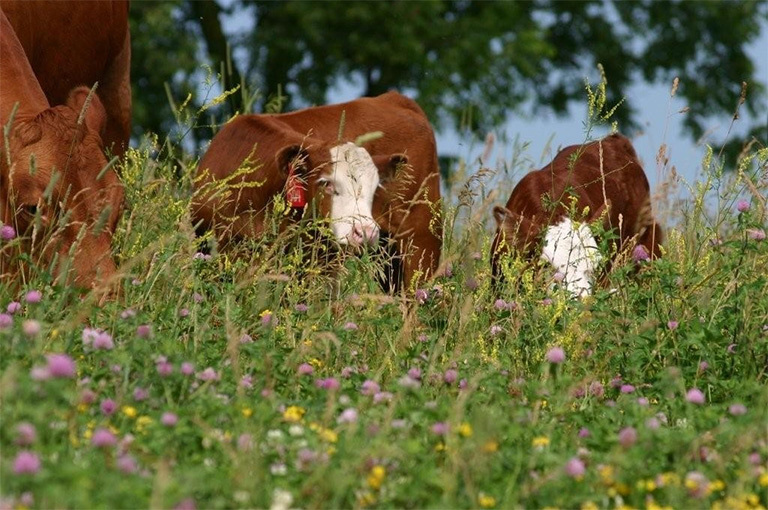Published 12/11/2020
In collaboration with UNEP, Compassion in World Farming’s Global CEO, Philip Lymbery, presented on the urgent need for a transformation to our food system.
In a webinar held today (11th December) UNEP, Compassion, and a host of food businesses and sustainability specialists discussed the need to move towards healthier diets and to embrace nature-positive high-welfare farming to help to regenerate and restore biodiversity. These discussions lead up to the 2021 Food Systems Summit, as part of the Decade of Action to achieve the Sustainable Development Goals.
Moderated by Hannah MacInnes, broadcaster and journalist, today’s EAT@home event, How to Love Food and Save Nature, included inspiring talks from our Global CEO; James Lomax the food systems and agriculture adviser in UNEP’s ecosystems division and Fabrice De Clerck Director of Science at EAT.
Philip Lymbery, Compassion’s Global CEO said of factory farming: “Chickens kept where they cannot flap their wings. Mother pigs crated so they can’t turn around for weeks at a time. Cattle taken out of fields and fed grain instead of grass.
“All of which looks like a space-saving idea but actually isn’t, because vast acreages of precious arable land elsewhere have to be devoted to growing their feed. Crop monocultures in artificial fertilisers, doused in chemical pesticides, leaving the countryside a green desert.
“No wonder the UN warns: carry on like this, and soils worldwide could be useless within just sixty years. Far better than to have a future-fit fusion of food, nature and animal welfare. Change is urgently needed; time is running out.”
Following on from Philip’s talk, James Lomax discussed how to bring about the change that is so needed. He said: “What’s so exciting is that we have an opportunity to really build momentum around the conversation and game changing ideas to set the right path, post summit, for a transformation.
“We need to create the environment and a safe space for difficult conversations – at a global, regional and national level.”
Fabrice De Clerck followed this by saying: “Food is the biggest driver for land degradation. Food is also our best bet for a solution.
“Decisions that we make this decade will have an impact for at least a hundred years.”
Following the speeches, discussions took place on how business is rising to the challenge in question. Key panellists included: Amy Keister, SVP Sustainability & Culinary for Compass Group North America; Priya Motupalli, Global Sustainable Agriculture Lead at IKEA Food and Erik Bruun Brindslev, Owner, Merika Advisory.
Both IKEA and Compass have found that COVID has brought around a real shift in how people think about their food, both in terms of production and consumption.
Priya specifically highlighted that IKEA wants to enable and inspire customers, alongside cutting the carbon footprint at IKEA and ensuring animals are farmed responsibility.
Amy discussed Compass’ company culture of doing the right thing – both for people and for the planet and the pride the company takes in their transparency. Erik embraced the fact that there’s a systemic problem that requires systemic change. In his opinion, in ten years, healthy, nutritional food should be a basic human right.
The final aspect of today’s event was an introduction to a new organic alliance and organic certification in the US. Philip introduced Elizabeth Whitlow, Executive Director of Regenerative Organic Certified and Will Harris an inspirational higher welfare farmer from White Oaks Pasture.
Elizabeth shared a presentation aptly entitled: ‘Farm as if the world depends on it’ to show how the Alliance was founded and how far they have already come. She introduced the audience to the three pillars on which they are founded: soil health, animal welfare and social fairness.
Will joined the event from his successful, family-owned, high-welfare farm. He is one of the founders of the Regenerative Organic Alliance and his farm has some of the best welfare practices that Philip has ever seen.
James Lomax closed the event with these inspiring words: “From difficult conversations, comes consensus. I would ask all of you to engage with the Food Summit somehow. Try to be the change yourself. Engage with your local farmers and buy local. We all have to strive to try to make that change in our food system.”
For more information, please email Media.Team@ciwf.org or call 01483 521 615.
How To Love Food And Save Nature Press Release:
